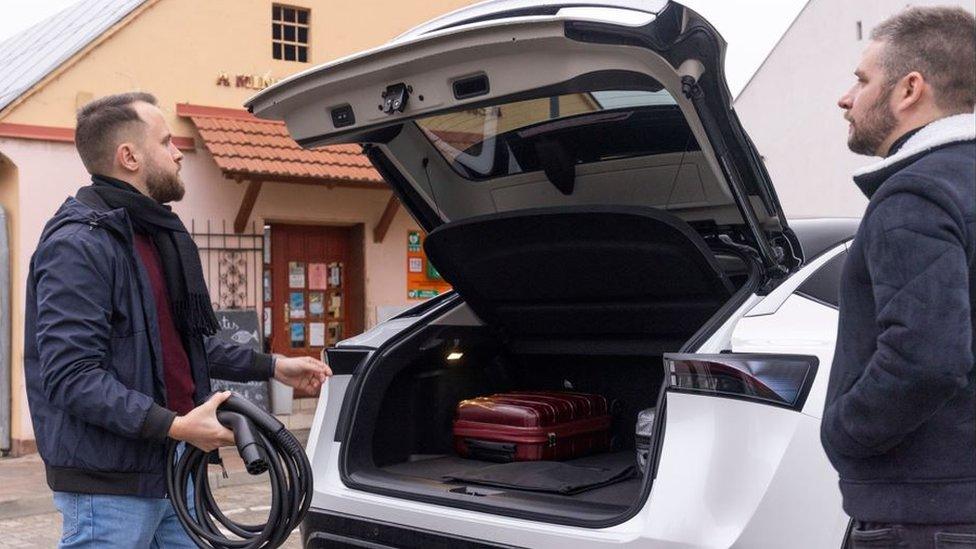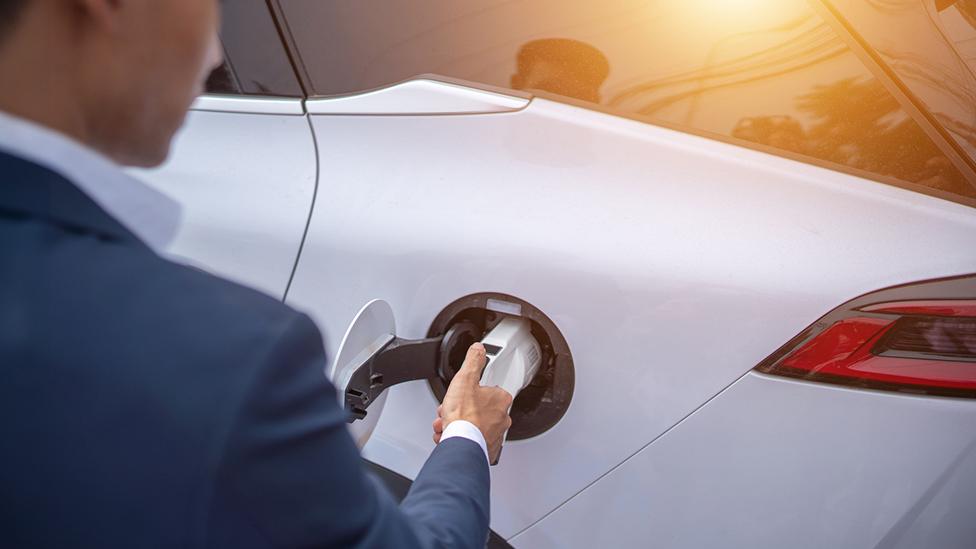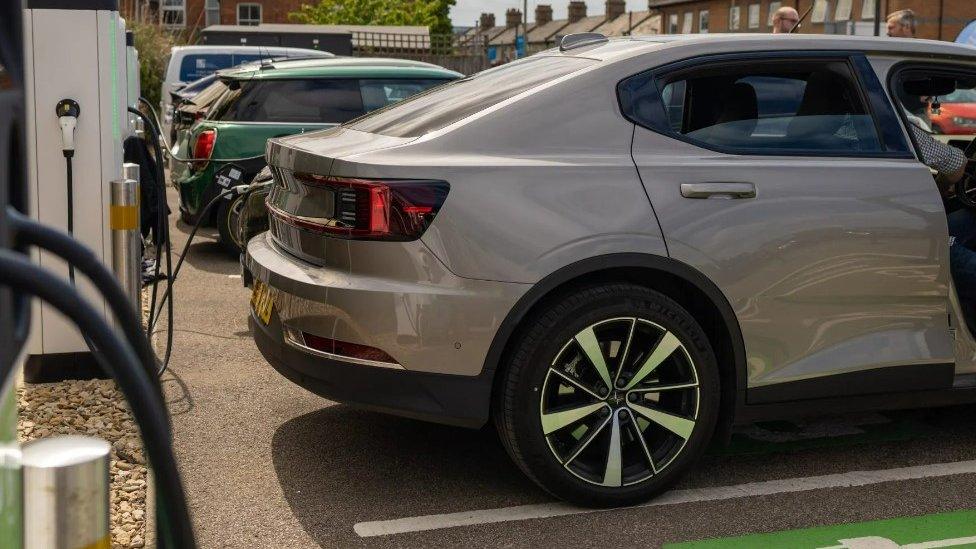Electric car chargers: Almost one third of UK sites in London
- Published
- comments

Nearly one third of all the UK's public charging devices for electric vehicles are in London.
New government data, external shows 8,680 new charging devices were installed nationwide in the past year - increasing the total by 31%.
But some regions are lagging behind, with the lowest rates seen in Northern Ireland and the north west of England.
The government said it had invested more than £2bn to support the switch to electric vehicles.
As of 1 January 2023, there were 37,055 public electric vehicle charging devices installed in the UK, up 31% from a year before.
That is according to data provided to the Department for Transport (DfT) by electric vehicle charger mapping service, Zap-Map.
Ciara Cook, research and policy officer at New Automotive, a non-profit organisation supporting the UK's transition to electric vehicles, said there was a greater need for public charging devices in urban environments, such as London.
She said areas like this had "a lot more people that don't have access to off-street charging".
The government-released data also shows that:
the West Midlands saw the biggest increase, with charging devices up 53% since January 2022, followed by Wales
London has by far the most charging devices of any region or nation in the UK, with 131 devices per 100,000 people
in England, the North West has the fewest charging devices with only 31 per 100,000 people
Your device may not support this visualisation
The government has made £450m available, external to local authorities for electric vehicle infrastructure projects, of which a fraction has been awarded.
Ms Cook added that it was important local authorities prioritised charging infrastructure to help "make sure that it makes economic sense to change to an electric vehicle".
A spokesperson for the Local Government Association (LGA), which represents 350 councils in England and Wales, said electric vehicles were only one way of achieving cleaner transport.
They said that "investment in cleaner and better bus networks and safer cycling and walking infrastructure" were also important.
"Whilst it's not a statutory duty, councils will do what they can in partnership with the private sector to respond to growing demand and local priorities."
The government is aiming for there to be 300,000 charging devices in the UK by 2030.
Vehicles growing at faster rate than charging devices
Almost a third of chargers in the UK are located on residential streets. Only 6% are located at places mid-journey, such as motorway service areas or service stations.
But the latest available data, external suggests the number of vehicles that can use charging devices is growing at a faster rate than available charging points.
Including all types of plug-in vehicle, such as battery-electric and hybrid, there were 1,003,000 electric vehicles in the UK as of September 2022. That is up 54% from one year before, compared with a 31% increase in charging devices.
Your device may not support this visualisation
A Department for Transport spokesperson said: "We want to maximise the opportunities available for motorists to switch to electric vehicles, which we've supported by investing more than £2bn.
"Today a driver is never more than 25 miles away from a rapid charge point anywhere along England's motorways and major A roads."
Related topics
- Published5 January 2023

- Published17 November 2022

- Published30 November 2022
